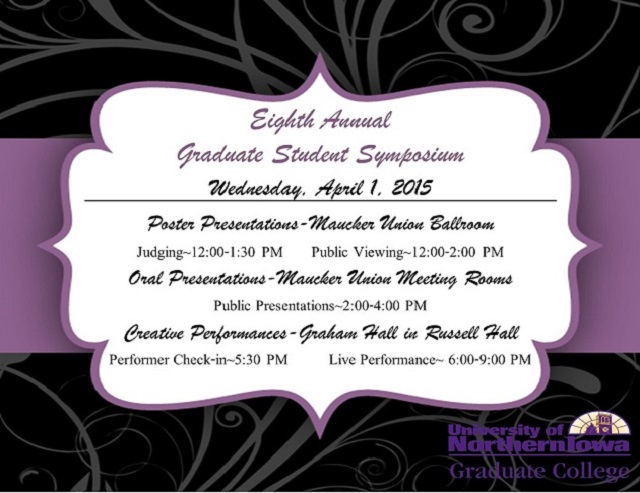
Complete Schedule
Award Winner

Recipient of the 8th Annual Graduate Student Symposium Award, Poster Presentations, Literature Review Category - Second Place (2015)
To go to the Graduate Student Symposium event page, Click here
Presentation Type
Poster Presentation (UNI Access Only)
Keywords
Social media--Psychological aspects; Teenagers--Social networks; Risk-taking (Psychology) in adolescence;
Abstract
Adolescents are increasingly turning to social networking sites as a means of communication. The Internet has provided adolescents with a means of communicating with not only friends and family members, but also people unknown to them offline. This means that adolescents are also being afforded opportunities that involve engaging in online risk-behaviors related to self-disclosure to strangers, unwanted sexual solicitation, and the arrangement of face-to-face meetings with strangers offline. The purpose of this research is to explore this issue and the many factors that can potentially contribute to adolescents’ vulnerabilities to such risk-taking online. Furthermore, evidence has been found for a number of ways in which parents and other adults can make efforts towards intervention and prevention of adolescents’ online risk-taking behaviors.
Start Date
1-4-2015 12:00 PM
End Date
1-4-2015 2:00 PM
Year of Award
2015 Award
Faculty Advisor
Nicole Skaar
Department
Department of Educational Psychology and Foundations
Copyright
© 2015 Rachel Ellingson
File Format
application/pdf
Embargo Date
3-15-2015
Adolescents’ Risk-Taking and Self-Disclosure Online
Adolescents are increasingly turning to social networking sites as a means of communication. The Internet has provided adolescents with a means of communicating with not only friends and family members, but also people unknown to them offline. This means that adolescents are also being afforded opportunities that involve engaging in online risk-behaviors related to self-disclosure to strangers, unwanted sexual solicitation, and the arrangement of face-to-face meetings with strangers offline. The purpose of this research is to explore this issue and the many factors that can potentially contribute to adolescents’ vulnerabilities to such risk-taking online. Furthermore, evidence has been found for a number of ways in which parents and other adults can make efforts towards intervention and prevention of adolescents’ online risk-taking behaviors.



Comments
Category: Poster Presentations - Literature Review